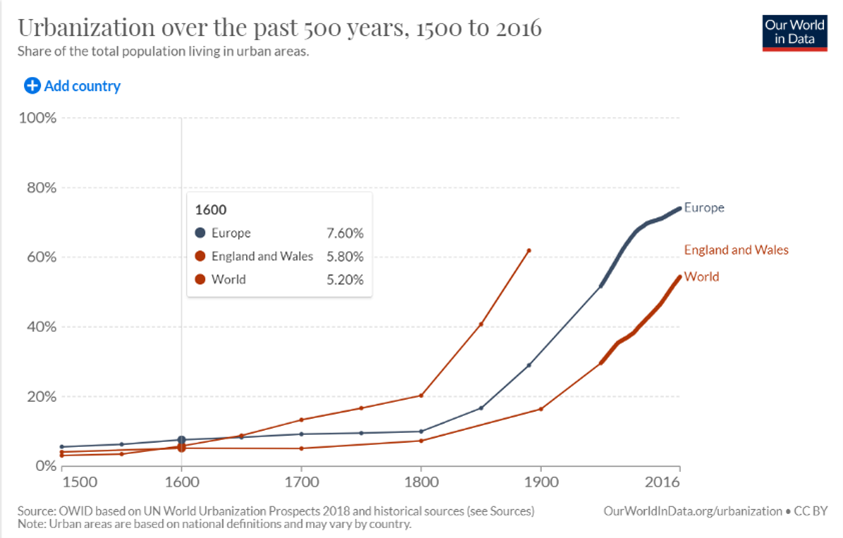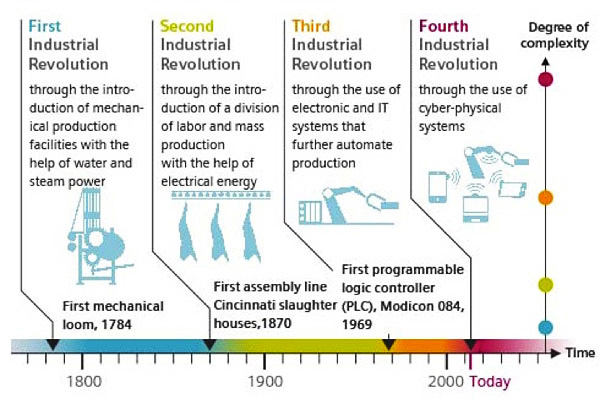“A Jack of all trades is a master of none”
The quote “A Jack of all trades is a master of none” is often used as an insult, critiquing someone who is good at many things, but who falls short of excellence with each of them. It is a perfect illustration of what our society has valued in industry for the past decades. Better a master at coding than being good at coding, music, and sport. Better a company being master of one product line, than a having many mediocre things. Better a PhD in a specific niche area, than multiple undergrad degrees or even master’s degrees. This mindset has given rise to many great advancements and inventions, and we wouldn’t have the world we live in today without this focus on ‘expertness’.
BUT as I’m sure some of you know, this is not the full quote. The full quote has a different ring to it. “A Jack of all trades is a master of none, but oftentimes better than a master of one”. Quite the opposite point of view isn’t it? It is interesting to look at when this quote was written. Originally published in “Essays and Characters of Prison” by English writer Geffray Mynshul in 1612 [1], though it may have been penned earlier. The world in which Mynshul was writing was very different to our own – no iPhones to be found, no computers to run simulations, Sir Isaac Newton was still 30 years away from being born and about 50 years from inventing calculus (how else could modern day engineering experts function?). In fact, the Industrial Revolution was still over one hundred years away. The world was an agricultural society, and under 10% of society lived in cities (Figure 1).

In this farming society, a family’s livelihood was dependent on the whole family being able to work together to run a farm. Being a master of one task was not desired and would not have been helpful. The mastery of hoes while not knowing how or when to plant seeds would have been useless. It would be critical for survival in those days to have an understanding not only how the whole farm worked and how each part and tool operated, but even more so WHEN to use each tool, and HOW they all worked in unison. In this light the original quote begins to make more and more sense. It was better to know how everything worked together, rather than spending all your time figuring out one task and missing the harvest.
What happened to change society from family run farms where value was found in understanding how everything worked on an individual level and as part of a whole, to an era of experts? The Industrial Revolution of the 1800s happened, forever changing the world as we knew it. The Industrial Revolution transformed society from an agrarian economy to a manufacturing economy where products were no longer made solely by hand but by machines. The importance of experts began to rise and over time gave way to the expertise focused society we have today. The quote would change from including “but oftentimes better than a master of one” to an insult on those unable to identify a single skill set to focus on.
Simplifying Product Development Complexity Using a Multidisciplinary Approach
The question we are left with is: where are we today? Where will we be tomorrow? Are we still in the society of our parents, grandparents, or our great-grandparents where being an expert in one field is the greatest value in society? Or is a shift under way? Are we beginning to, in a manner of speaking, go back to a time in history where greater value was placed on a multidisciplinary skillset ? I would argue we have reached this point as we enter the fourth Industrial Revolution.
The era of multidisciplinary approach is here (Figure 2). A time when managing the complexity of today’s engineering challenges calls for a multidisciplinary understanding, not just at the end of the project but right from the beginning. In product development, this is where systems engineering begins to shine. A Model-Based Systems Engineering (MBSE) approach simplifies engineering complexities between mechanical, electrical, software, and other functions using a unified modeling language. One standard language simplifies problem definition and agreement on a solution. MBSE provides the ability to understand the whole system by evaluating how the different functional parts of a product interact with one another and overlap, allowing engineers to resolve potential system conflicts early in the product development process.

Leveraging Model-Based Systems Engineering Tools
Today’s competitive manufacturing market requires the ability to identify the requirements of a product’s whole system at the onset of a development project. The ability to bring many disciplines together, working in unison from a project outset as opposed to building a prototype near the end of a product design saves on redesign time and costs. In our world of extremely complex systems, this cannot be done just with pen and paper. Although that is still a good place to start, the task requires using the best tools we have available to us. At the forefront of MBSE tools is the CATIA Magic software platform. It allows project leaders, system engineers, and indeed all disciplines to work together to develop a model of the entire system in one snapshot to ensure they have captured the complete picture of what is required, and how their design is meeting those objectives. With CATIA Magic, users can model, analyze, verify, and validate the system as it is developed and quickly identify potential system conflicts. Dynamically identify and track stakeholders requirements, and how they are being addressed by the system from the conceptual design phase and throughout a product’s lifecycle.
As we enter the fourth Industrial Revolution and the degree of complexity in our products skyrockets, we are in an interesting position of needing to revive a skillset that was the norm before the first Industrial Revolution – a multidisciplinary understanding of the system. Thankfully, with tools like CATIA Magic, we can undertake this retooling process using 21st century tools that enable all the essential steps of modeling to support system requirements, becoming “A Jack of all systems [who] is a master of none, but oftentimes better than a master of one”.
References
[1] “The Phrase Finder,” [Online]. Available: https://www.phrases.org.uk/meanings/jack-of-all-trades.html
[2] “Urbanization,” [Online]. Available: https://ourworldindata.org/urbanization
[3] [Online]. Available: https://www.manufacturing-operations-management.com/.a/6a00e551030252883401b8d138b7c7970c-popup
Questions?
If you have any questions or would like to learn more about CATIA Magic for Model-Based Systems Engineering, please contact us at (954) 442-5400 or submit an online inquiry.






